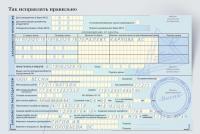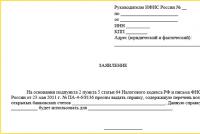Secrets of a successful resume: what to write in the column "Reason for dismissal"
If you are actively looking for a job, you just need to write a competent and detailed resume. This is the calling card of each applicant, which allows you to present yourself in a favorable light in front of the employer, describe your merits and achievements in the professional field, business goals and experience.
However, not every profile is able to interest the recruiting manager. To draw the attention of the personnel officer to your resume, you need to compose it correctly. To do this, it is necessary not only to exclude grammatical, spelling and stylistic errors, but also to correctly and fully disclose questions.
As a rule, filling in the main points related to work experience and personal qualities is not a problem for applicants, but many people often have a question about what to write in the “Reason for leaving” column so as not to alienate a potential employer.
Possible options
To write a good resume and increase your chances of success in getting the job you want, you need to indicate the “right” reasons for leaving your previous job. Among them may be:
- Company reorganization or closure
In this case, the personnel officer will think that the dismissal is not related to your low level of professionalism, conflicts in the team or your personal qualities, but is caused by factors that are insurmountable for you. However, please note that it is not worth writing false data about the closure or reorganization of the company, because in the era of modern technology, this information can be easily verified.
- Lack of career or professional growth
Perhaps this is one of the best reasons for dismissal. Having heard it, your future leader will certainly judge that you are leaving the company not because of money or conflicts in the team, but for the sake of your professional growth and development. However, when indicating such a reason in your questionnaire, consider one important circumstance - this factor cannot explain the departure from the company earlier than a year later.
- Desire to explore new areas of activity
Seeing such a reason for dismissal in the applicant's profile, the person who is responsible for hiring new employees will draw conclusions about you as a versatile and creative person who does not want to stop at the goals achieved. Creative people are highly valued by management, but if you justify dismissal from all firms with this factor, then the personnel officer may regard you as a frivolous person.
- Previous work did not live up to expectations, although it was interesting and brought financial and moral satisfaction
You can write this reason on your resume when applying for a job, but be prepared for the fact that during the interview it will raise additional questions.
- Prestige, good reputation and great opportunities in the new company
This reason can also be used to justify leaving the old company. But here it is important not to overdo it with praise, because too “sweet” words can make your potential employer suspicious.
- End of the employment contract
This is the best way to explain the fact that you left the company. As a rule, it does not raise additional questions and is perceived by the employer as a circumstance that does not depend on the applicant.
What can't be talked about?
The resume column “Reason for leaving” worries the heads of all companies who are interested in hiring not just a highly qualified employee, but also a responsible, disciplined and able to get along with colleagues.

- When applying to a firm, you should not shy away from a direct answer and write template and vague reasons in the questionnaire (such as “due to circumstances”, “of your own free will”, “differences of the parties”), because this will certainly arouse the suspicion of the recruiting manager, which may suggest the worst case.
- You do not need to write in the questionnaire that you were fired due to the financial crisis or due to staff reduction. Experienced managers understand that no one ever partes with valuable and highly professional employees, even in the most unfavorable times.
- It is unacceptable, when indicating the reason for dismissal, to criticize your former employer, even if such words are deserved by them. The recruiting manager or your potential boss can draw conclusions about your incorrectness and low degree of loyalty to the boss and the whole company.
- Also, in your resume, you should not refer to a low salary, as the head of the company will decide that you are only interested in money. In every serious company, valuable personnel are always met halfway, periodically increasing salaries and paying out various bonuses and incentives. If this did not happen to you, then a potential employer may conclude that your professionalism is low or that your requirements are too high. An exception may be the situation if the applicant worked, for example, in the public sector, where it is almost impossible to influence the growth of wages.
- You can not argue the reason for dismissal by unfriendliness on the part of the team, as this will be a clear indication of your inability to get along with colleagues. And unrestrained and conflicting people are not needed in large companies and firms!
Also, in the summary, you should not indicate such options as:
- excessive requirements of the firm or company, the management of which annually forced you to take refresher courses;
- irregular working hours;
- long business trips;
- dismissal due to the end of the probationary period;
- salary "in an envelope";
- uncomfortable working conditions.
How to properly explain your dismissal?
Whatever the reason for dismissal you indicate in your resume, do not forget that a serious and experienced employer, when applying for a particular position, will be able to find out the whole truth by making just one phone call. Therefore, you should not embellish the circumstances for which you were forced to leave the previous company. In order not to get into an awkward situation, you need to learn how to correctly explain the reasons for your dismissal.
Rule one - if you do not want to lie, but the reason for your dismissal is one of the factors that are not recommended to be written about in a resume, report it at the time. However, please note that your answer should be as truthful and detailed as possible.

For example, if you had to pay because the office was too far from home, explain that the commute to work took more than two hours and you were often late because of long traffic jams and erratic public transport schedules. . In this case, it would not be superfluous to mention that you were ready to move to another department, but there was no free vacancy.
Rule two - the reason for leaving the previous job should not contradict the entry in the work book (of course, only if you worked on the basis of an employment contract and received an official salary). If the dismissal occurred under one of the articles of the Labor Code (for example, for absenteeism, theft or embezzlement of company property, etc.), then it is unlikely that when applying for a new job they will believe that you were not satisfied with irregular working hours and frequent business trips.
Another thing is dismissal by agreement of the parties. This wording is the most advantageous, since, as a rule, it means that the parties parted, as they say, in a friendly way and have no claims against each other.
There is another option - at your own request. On the one hand, this wording will not contradict your words if you say that you want to study new activities or try your hand at a larger and more serious company, where possible. But on the other hand, it can arouse suspicion, because, contrary to your words, you could leave the company due to a conflict with management or colleagues.
And yet, no matter what reason for dismissal you write in your resume, try to be as truthful as possible, because every employer appreciates honesty, discipline and decency in their employees.






